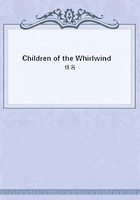
第4章
"Junk! Funny!" Hunt swung around, one big hand closed about Jimmie's lean neck and the other seized his thin shoulder. "You grandfather of the devil and all his male progeny, you talk like that and I'll chuck you through the window!"
Old Jimmie grinned. The grip of the big hands of the painter, though powerful, was light. They all knew that the loud ravings of the painter never presaged violence. They had grown to like him, to accept him as almost one of themselves; though of course they looked down upon him with amused pity for his imbecility regarding his paintings.
"Get out of here," continued Hunt, "or cut out all this noise that comes from your having a brain that rattles. I've got to work."
Hunt turned again to his easel, and Old Jimmie, still grinning, lowered himself into a chair, lit a cigar, and winked at Barney. Hunt, with brush poised, regarded Maggie a moment.
"You there, Maggie," he ordered, "chin up a bit more, some flash in your eyes, more pep in your bearing--as though you were asking all the dames of the Winter Garden, and the Charity Ball, and the Horse Show, and that gang of tea-swilling women at the Ritzmore you sell cigarettes to--as though you were asking them all who the dickens they think they are ... O God, can't you do anything!"
"I'm doing the best I can, and I look more like those dames than you look like a painter!"
"Shut up! I'm paying you a dollar an hour to pose, not to talk back to me. And you'd have more respect for my money if you knew how hard I had to work to earn it: carrying a motor car around in each hand. Wash off that scowl and try to look as I said ... There, that's better.
Hold it."
He began to paint rapidly, with quick glances back and forth between the canvas and Maggie. Maggie's dress was just the ordinary shirt-waist and skirt that the shopgirl and her sisters wear; Hunt had ordered it so. She was above the medium height, with thick black hair tinted with shadowy blue, long dark lashes, dark scimitars of eyebrows, a full, firm mouth, a nose with just the right tilt to it--all effective points for Hunt in what he wished to do. But what had attracted him most and given him his idea was her look; hardly pertness, or impudence--rather a cynical, mature, defiant certainty in herself.
Erect in her cheap shirt-waist, she gazed off into space with a smiling, confident challenge to all the world. Hunt was trying to make his picture a true portrait--and also make it a symbol of many things which still were only taking shape in his own mind: of beauty rising from the gutter to overcome beauty of more favored birth, and to reign above it; also of a lower stratum surging up and breaking through the upper stratum, becoming a part of it, or assimilating it, or conquering it. Leading families replaced by other families, classes replaced by other classes, nations replaced by other nations--such was the inevitable social process--so read the records of the fifty or sixty centuries since history began to be written. Oh, he was trying to say a lot in this portrait of a girl of ordinary birth--even less than ordinary--in her cheap shirt-waist and skirt!
And it pleased the sardonic element in Hunt's unmoral nature that this Maggie, through whom he was trying to symbolize so much, he knew to be a petty larcenist: shoplifting and matters of similar consequence. She had been cynically frank about this to him; casual, almost boastful.
Her possessing a bent toward such activities was hardly to be wondered at, with her having Old Jimmie as her father, and the Duchess as a landlady, and having for acquaintances such gentlemen as Barney Palmer and this returning prison-bird, Larry Brainard.
But petty crime, thought Hunt, would not be Maggie's forte if she developed her possibilities. With her looks, her boldness, her cleverness, she had the makings of a magnificent adventuress. As he painted, he wondered what she was going to do, and become; and he watched her not only with a painter's eye intent upon the present, but with keen speculation upon the future.